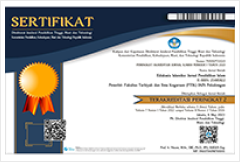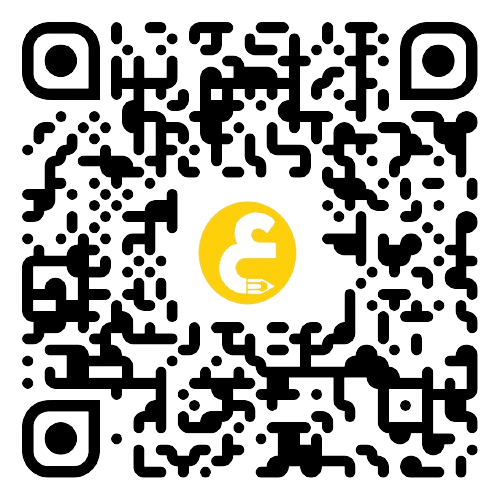Adopting Michael Fullan’s Framework to Illuminate Islamic Education Teachers’ Struggles for the Enactment of Government-Prescribed Curriculum
DOI:
https://doi.org/10.28918/jei.v5i2.1069Keywords:
Education Quality, Islamic Education, Michael Fullan’s Framework, National CurriculumAbstract
The present study aims to elucidate the struggles of Islamic education teachers for the enactment of the 2013 Curriculum, the national curriculum, in Aceh, Indonesia adopting Michael Fullan’s framework. Grounded in a case study approach, data were garnered through in-depth interviews situated in senior secondary schools. Twelve urban and rural Islamic education teachers were recruited to participate in this case study. The study was conducted in six regencies. Study findings demonstrate that urban Islamic education teachers applied the objectives, materials, methods, and learning assessments in accordance with the government-prescribed curriculum. Rural Islamic education teachers did not receive sufficient facilities to enact the national curriculum. This study exposes that Fullan’s framework could be adapted to illuminate the best practice and understanding of Islamic education teachers in implementing the national curriculum, i.e.: building leadership communication, creating a conducive atmosphere and overcoming emerging problems, organizing teacher discussion forums, determining professional goals, building the capacity of educators, strengthening positive evaluation, and strengthening financial management. The study also indicates that support from the school and government is pivotal to require for Islamic education teachers to guarantee the quality of education in supporting the enactment of the government-mandated curriculum. Curriculum development, therefore, needs to be communicated to Islamic education teachers regarding the sustainable development of teacher competencies, e.g. organizing seminars, workshops, and developing learning materials
References
Ahmad, S. (2014). Problematika Kurikulum 2013 dan Kepemimpinan Instruksional Kepala Sekolah. Jurnal Pencerahan, 8(2), 104–114. https://doi.org/10.13170/jp.8.2.2158
Barney, L. J., Griffiths, K. M., & Banfield, M. A. (2011). Explicit and implicit information needs of people with depression: A qualitative investigation of problems reported on an online depression support forum. BMC Psychiatry, 11(88), 1-11. https://doi.org/https://doi.org/10.1186/1471-244X-11-88
Braun, V., & Clarke, V. (2006). Using thematic analysis in psychology. Qualitative Research in Psychology, 3(2), 77–101. DOI: 10.1191/1478088706qp063oa
Creswell, J. W., & Creswell, J. D. (2018). Research and Design Qualitative, Quantitative and Mixed Methods Approaches. Thousand Oaks California: SAGE Publications.
Devos, G., Tuytens, M., & Hulpia, H. (2014). Teachers’ organizational commitment: Examining the mediating effects of distributed leadership. American Journal of Education, 120(2), 139–171. https://doi.org/https://doi.org/10.1086/674370
Djatmiko, E. (2006). Pengaruh Kepemimpinan Kepala Sekolah dan Sarana Prasarana terhadap Kinerja Guru SMP Negeri Kota Semarang (The Effect of the Principal’s Leadership and Facilities on the Teacher’s Performance of State Junior High Schools of Semarang Municipality). Fokus Ekonomi, 1(2), 19–30.
Fullan, M. (2007). The New Meaning of Educational Change (Fourth Ed.). Columbia: Teachers College Press.
Hamalik, O. (2012). Perencanaan Pengajaran Berdasarkan Pendekatan Sistem. Jakarta: Bumi Aksara.
Hidayatulloh, A., & Anam, W. (2017). Problematika K13 dalam Pembelajaran PAI. Edudeena, 1(2), 63–74. https://doi.org/10.30762/ed.v1i2.448
Komatsu, T. (2014). Does decentralisation enhance a school’s role of promoting social cohesion? Bosnian school leaders’ perceptions of school governance. International Review of Education, 60, 7-31. https://doi.org/https://doi.org/10.1007/s11159-014-9406-4
Merkl-Davies, D. M., & Brennan, N. M. (2011). A conceptual framework of impression management: New insights from psychology, sociology and critical perspectives. Accounting and Business Research, 41(5), 415-437. https://doi.org/https://doi.org/10.1080/00014788.2011.574222
Moolenaar, N. M. (2012). A social network perspective on teacher collaboration in schools: Theory, methodology, and applications. American Journal of Education, 119(1), 1–6. https://doi.org/https://doi.org/10.1086/667715
Mulasi, S. (2019). Problematika Pembelajaran PAI pada Madrasah Tsnawiyah di Wilayah Barat Selatan Aceh. Jurnal Ilmiah Islam Futura, 18(2), 269-281. https://doi.org/10.22373/jiif.v18i2.3367
Mulyasa, E. (2014). Pengembangan dan Implementasi Kurikulum 2013 (Cet. Ke-4). Bandung: PT. Remaja Rosdakarya.
Okoji, O. (2014). Influence of Leadership Styles on Community Development Programmes’ Implementation in Rural Communities of Akwa Ibom State Nigeria. African Research Review, 8(2), 83-91. https://doi.org/https://doi.org/10.4314/afrrev.v8i2.6
Oliva, P. F. (2004). Supervision for today’s schools. London: Wiley/Jossey-Bass Education CN.
Parlar, H., & Cansoy, R. (2017). The effect of bureaucratic school structure on teacher leadership culture: A mixed study. Kuram ve Uygulamada Egitim Bilimleri, 17(6), 2175–2201. https://doi.org/https://doi.org/10.12738/estp.2017.6.0150
Razali, F., & Yusoff, N. M. (2017). Kefahaman Guru pada Pelaksanaan Kurikulum 2013 dalam Membuat Modul Pembelajaran di SMKN 3 Kota Banda Aceh. Proceedings of ICSoTL 2017.
Subandi, D. L. (2018). Pengembangan Kurikulum KKNI Berbasis Entrepreneurship pada Prodi Manajemen Pendidkan Islam. Jurnal Iqra’ : Kajian Ilmu Pendidikan, 3(2), 360-372. https://doi.org/: https://doi.org/10.25217/ji.v3i2.360
Suhayati, I. (2013). Supervisi Akademik Kepala Sekolah, Budaya Sekolah Dan Kinerja Mengajar Guru. Jurnal Administrasi Pendidikan UPI, 17(1), 86-95. https://doi.org/10.17509/jap.v17i1.6435
Sulaiman, E. (2003). Amalan Profesionalisme Perguruan. Johor Bahru: Universiti Teknologi Malaysia.
Turere, V. N. (2013). Pengaruh Pendidikan Dan Pelatihan Terhadap Peningkatan Kinerja Karyawan Pada Balai Pelatihan Teknis Pertanian Kalasey. Jurnal Riset Ekonomi, Manajemen, Bisnis dan Akuntansi, 1(3), 10-19.
Ulya, I. (2017). Internalisasi Karakter Sensitif Gender dalam Kurikulum Pendidikan. Edukasia Islamika: Jurnal Pendidikan Islam, 2(1), 107-126. https://doi.org/10.28918/jei.v2i1.1664
Wahidah, A. (2013). The effect of training “understanding and assisting in learning” increased understanding of the classroom teachers in inclusive schools on children with special need. Jurnal Psikologi Pendidikan dan Perkembangan, 2(03),170-183.
Wisdom, J. P., Cavaleri, M. A., Onwuegbuzie, A. J., & Green, C. A. (2012). Methodological Reporting in Qualitative, Quantitative, and Mixed Methods. Health Services Research, 47(2), 721-745. https://doi.org/. https://doi.org/10.1111/j.1475-6773.2011.01344.x






















